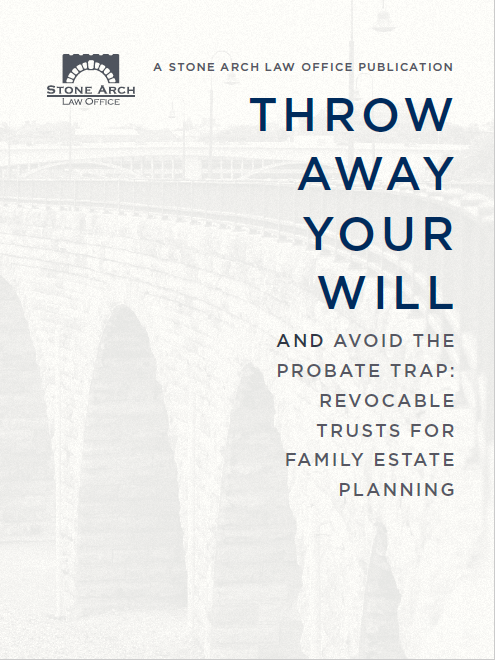ATTENTION: This Guide Can Prevent Court Fees!

This FREE 35 Page Guide Will Teach You:
- WHY Your Estate Will Go Through Probate
- HOW To Keep Your Estate Out of Probate
- WHY a Trust Save You TIME and MONEY
- The TRUTH About Wills (And Why They're NOT Your Best Choice)
- WHO Should Have a Revocable Trust, and WHO SHOULD NOT
- The BEST Way to Protect Your Family Finances
Just Enter Your Email Address!
PRIVACY POLICY: We will not rent, share, or sell your email address!
We promise to keep your email 100% SAFE!
Copyright © 2022 Stone Arch Law Office, PLLC